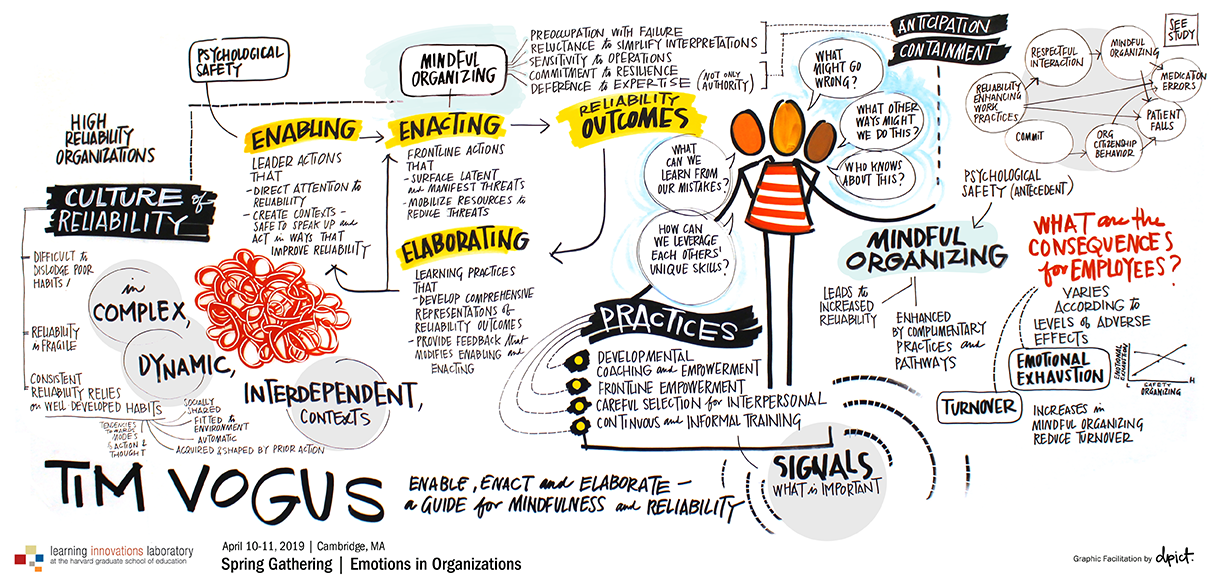
Health care in hospitals has been an acute context for low-reliability, which there are large amounts of deaths due to error and high levels of professional burn-out. Efforts to impose high-reliability in health care have had relatively low impact. Because employees are being pushed beyond their limits. People become emotionally exhausted when they are asked to pay more attention, look for new signals, and looking for discrepant and rare events. Tim noted that organizations that engage in high reliability have higher levels of emotional exhaustion.
So how do organizations care for the caregivers? Tim Vogus of Vanderbilt University shared some research and approaches that restore professional identity, create connections across employees, and create connections to the patients. A key here is to create more “compassion” in high quality care in which we’re engaging in empathy of others. It’s noticing someone else’s experience, feeling their feelings, and understanding their actions.
Tim shared a variety of compassion practices they studied in various health care settings. In one clinic, doctors and nurses can call a “code lavender” when they need help emotionally and are crashing. These practices need to be recognized and rewarded within the organizational culture. Their research found that compassionate practices were linked to quality care in hospital. Moreover, the practices are associated with lower emotional exhaustion, higher psychological vitality and job satisfaction.
They coded three types of compassion practices:
- Infusing: hiring and socializing practices that with new people to enact compassion.
- Sustaining: Recognition and rewards to reinforce the practices in the organizations.
- Replenishing:Supporting employees to deal with emotions and exhaustion so they are freer to engage in compassion.
What’s important about these practices is that they create spaces for people to experience contradictory feelings. This enables cognitive flexibility and mindfulness because it supports simultaneously experiencing hope and doubt.
What would it look like if your organization had quality experience evaluations and measures, like hospitals (e.g. HCAPHS)? Do you already have them? If so, share with the LILA community.

Add a comment